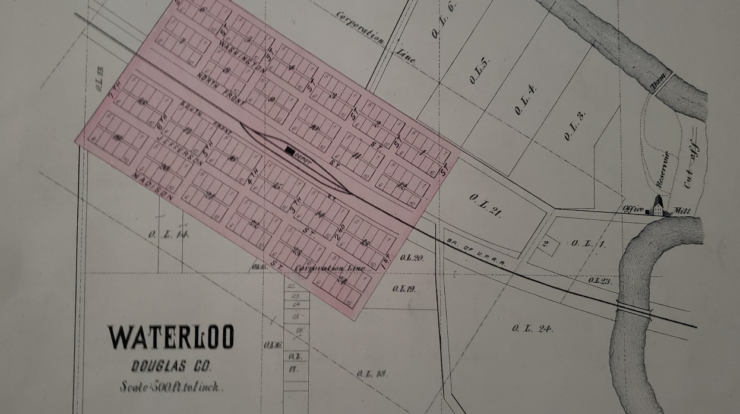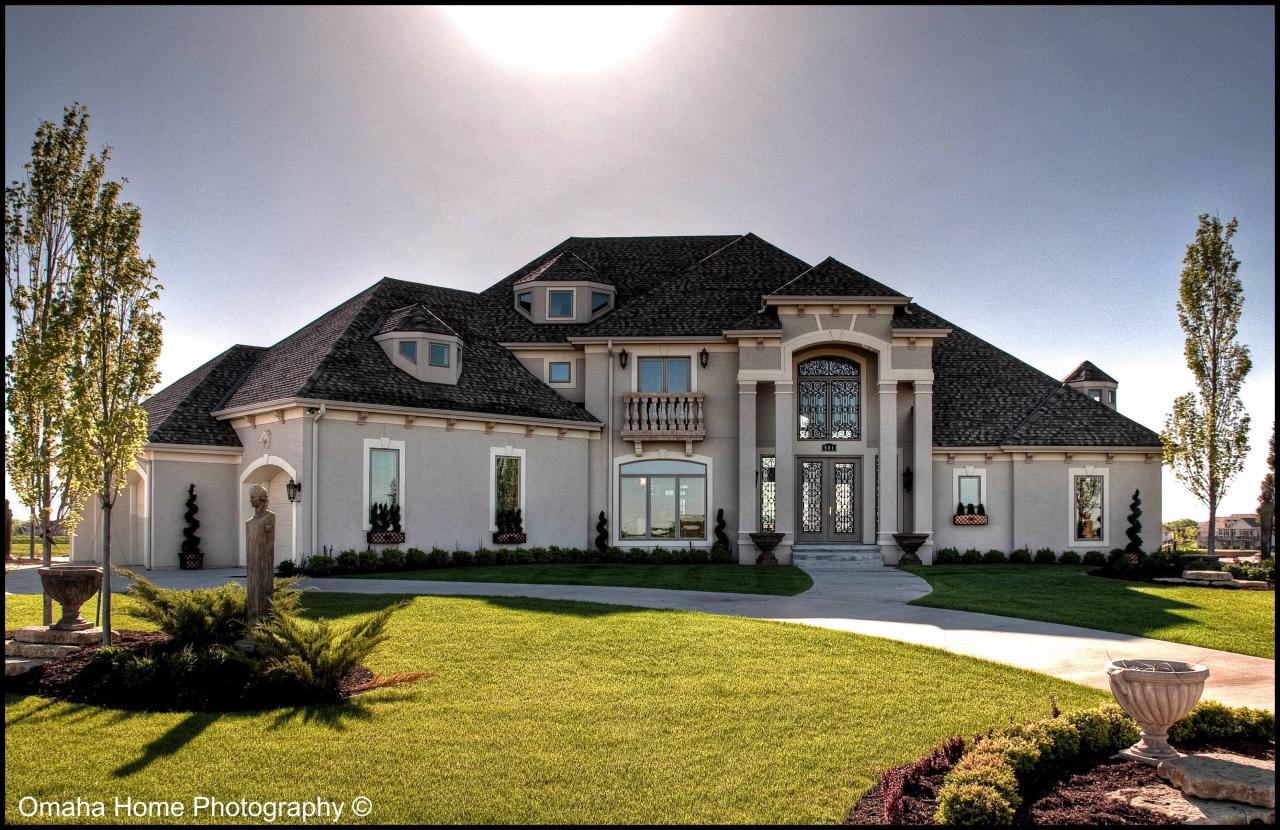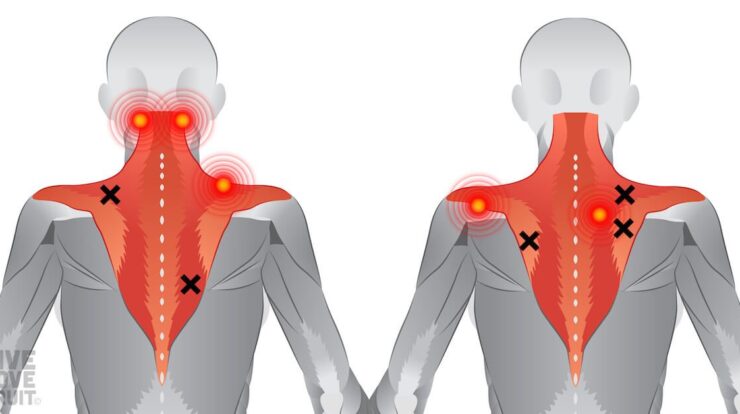
Waterloo Nebraska, a city steeped in history and brimming with charm, beckons us to delve into its captivating narrative. From its humble beginnings to its present-day vibrancy, Waterloo has woven a rich tapestry of experiences that captivate and inspire.
Nestled in the heart of the Midwest, Waterloo has witnessed the transformative power of the Union Pacific Railroad, shaping its destiny and propelling it towards progress. Today, it stands as a thriving community, boasting a diverse population and a thriving economy.
History of Waterloo, Nebraska

Waterloo, Nebraska, traces its roots back to the 1860s, when the Union Pacific Railroad was being constructed through the area. The railroad established a station at the present-day site of Waterloo, and the town soon sprang up around it.
In 1870, Waterloo was officially incorporated as a village, and by the early 1900s, it had become a thriving agricultural center. The town’s population grew steadily throughout the 20th century, and in 1981, Waterloo was officially designated as a city.
Significant Events in Waterloo’s History
- 1860s: Union Pacific Railroad establishes a station at the site of present-day Waterloo.
- 1870: Waterloo is incorporated as a village.
- Early 1900s: Waterloo becomes a thriving agricultural center.
- 1981: Waterloo is designated as a city.
The Union Pacific Railroad played a pivotal role in the growth of Waterloo. The railroad provided a vital link to markets in the East, and it also brought new settlers to the area. Waterloo’s location on the railroad also made it a convenient stopping point for travelers, and the town soon became a center for commerce and trade.
Geography and Demographics of Waterloo, Nebraska
Waterloo is located in the eastern part of Nebraska, approximately 20 miles west of Omaha. The city is situated on the banks of the Platte River, and it is surrounded by rolling hills and farmland.
According to the 2020 census, Waterloo has a population of 2,658. The city’s population is predominantly white, with a small minority of Hispanic and Asian residents. Waterloo’s median household income is $58,000, and the city’s unemployment rate is 3.5%.
| Waterloo | Nebraska | United States | |
|---|---|---|---|
| Population | 2,658 | 1,961,504 | 332,403,650 |
| Median Household Income | $58,000 | $64,500 | $67,521 |
| Unemployment Rate | 3.5% | 2.8% | 3.9% |
Culture and Attractions in Waterloo, Nebraska
Waterloo is a vibrant community with a rich cultural heritage. The city is home to a number of cultural attractions, including the Waterloo Community Playhouse, the Waterloo Public Library, and the Waterloo Historical Society Museum.
Waterloo also hosts a number of annual festivals and community events, including the Waterloo Rodeo, the Waterloo Corn Festival, and the Waterloo Christmas Parade.
Notable Landmarks
- Waterloo Community Playhouse
- Waterloo Public Library
- Waterloo Historical Society Museum
- Platte River
- Waterloo Golf Course
Annual Festivals and Community Events, Waterloo nebraska
- Waterloo Rodeo
- Waterloo Corn Festival
- Waterloo Christmas Parade
- Waterloo Summer Concert Series
- Waterloo Farmers Market
Education and Healthcare in Waterloo, Nebraska: Waterloo Nebraska
Waterloo is served by the Waterloo Public Schools district, which operates three elementary schools, one middle school, and one high school. The city is also home to a number of private schools, including St. Patrick’s Catholic School and Waterloo Christian School.
Waterloo is home to a number of healthcare facilities, including the Waterloo Community Hospital and the Waterloo Medical Clinic. The city also has a number of dentists, optometrists, and other healthcare providers.
| Waterloo | Nebraska | United States | |
|---|---|---|---|
| Life Expectancy | 80.5 years | 80.3 years | 78.8 years |
| Infant Mortality Rate | 4.5 per 1,000 live births | 5.2 per 1,000 live births | 5.8 per 1,000 live births |
| Obesity Rate | 25.0% | 28.0% | 31.1% |
Economy and Infrastructure in Waterloo, Nebraska

Waterloo’s economy is based on a mix of agriculture, manufacturing, and services. The city is home to a number of major employers, including the Waterloo Meatpacking Plant, the Waterloo Ethanol Plant, and the Waterloo Tractor Factory.
Waterloo has a well-developed transportation infrastructure, with access to Interstate 80 and U.S. Highway 275. The city is also served by the Union Pacific Railroad and the Omaha Airport.
Economic Development Initiatives
- Waterloo Economic Development Corporation
- Waterloo Chamber of Commerce
- Waterloo Industrial Development Authority
Notable People from Waterloo, Nebraska
Waterloo has been home to a number of notable people, including:
| Name | Occupation | Accomplishments |
|---|---|---|
| William Jennings Bryan | Politician | Three-time Democratic presidential nominee |
| Charles Lindbergh | Aviator | First person to fly solo across the Atlantic Ocean |
| Malcolm X | Civil rights activist | Spokesman for the Nation of Islam |
| Warren Buffett | Investor | One of the world’s wealthiest people |
| Bob Kerrey | Politician | U.S. Senator from Nebraska |
Closing Notes
Waterloo Nebraska’s journey continues to unfold, with new chapters being written every day. Its vibrant culture, commitment to education, and unwavering community spirit ensure that its legacy will endure for generations to come.
Questions Often Asked
What is Waterloo Nebraska known for?
Waterloo Nebraska is known for its rich history, vibrant culture, and thriving community.
What are some of the notable landmarks in Waterloo Nebraska?
Notable landmarks in Waterloo Nebraska include the Dodge County Historical Society Museum, the Waterloo Depot Museum, and the Dr. Robert Henry Park.
What are the major industries in Waterloo Nebraska?
Major industries in Waterloo Nebraska include manufacturing, healthcare, and retail.





